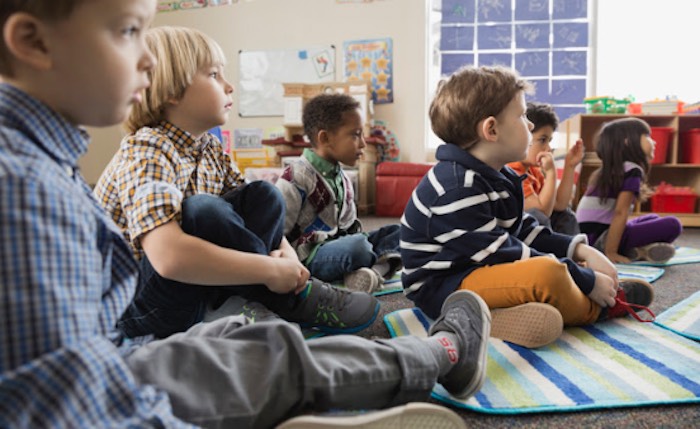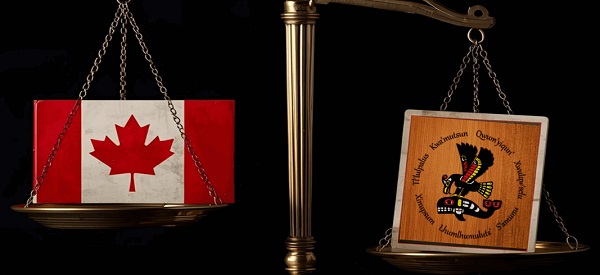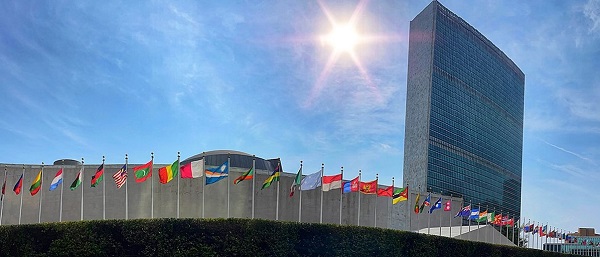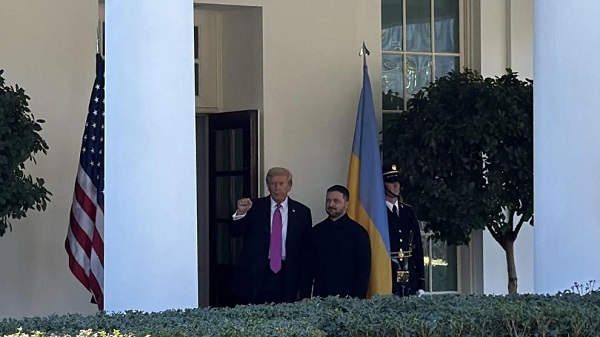Alberta
Following feedback Alberta Education to release new curriculum this fall

French and science curriculums ready for classrooms
Elementary students and teachers will benefit from updated K-6 curriculums and resources in classrooms this fall.
Alberta’s government is continuing to take a balanced and measured approach to kindergarten to Grade 6 (K-6) curriculum renewal, based on advice from the Curriculum Implementation Advisory Group. All K-3 students will learn from new French First Language and Literature, French Immersion Language Arts and Literature and Science curriculums this September. School authorities will also have the option to implement new curriculum in these three subjects for grades 4 to 6 if they choose.
Alberta’s government is delivering on its commitment to provide updated curriculum with essential knowledge and skills to better prepare students for the future.
“Curriculum renewal is essential to help prepare our students for a rapidly changing labour market, which is placing an ever- increasing premium on adaptability and transferable skills. To ensure successful implementation, we are making significant investments to provide teachers with the resources they need to support students in transitioning to the new curriculum.”
In response to feedback on the original draft, changes across the three K-6 subjects have been made to address areas of concern with content load, age appropriateness and wording clarity. Subject-specific changes include:
- Strengthening French First Language and Literature content by adding spelling rules and specifying which types of texts are studied in each grade.
- Enhancing French Immersion Language Arts and Literature content to align with the principles of learning an additional language and developing students’ creative writing skills.
- Strengthening Science content to promote understanding of agricultural practices in Alberta and align with previously implemented subjects. In the new K-6 Science curriculum, students in Grade 3 will examine how layers of Earth’s surface, including the discovery and location of dinosaur fossils, hold information about the past. In Grade 6, students will examine abstractions, coding structures and the impact of computers and technology.
Alberta’s government has listened to all feedback from classroom piloting and engagement activities to make final updates to the K-6 French First Language and Literature, French Immersion Language Arts and Literature and Science curriculums. In the 2022-23 school year, 47 school boards across the province piloted the draft curriculum, including 941 teachers and 22,000 students. The updated curriculums align with top-performing jurisdictions in Canada and globally and with new curriculum previously implemented across the province. Albertans can access the final curriculum online to see what has changed.
“For this school year, we had 60 teachers from K-6 participate in the French Immersion Language Arts and Literature (FILAL) pilot. Teachers are impressed with how condensed and clearly laid out the curriculum is as well as the consideration that has been given to age-appropriate sequencing of learning outcomes. Teachers are looking forward to implementing this curriculum next school year and to receiving a list of curated Alberta Education resources to support with implementation.”
“The FCSFA appreciates the willingness to listen and the cooperation of Alberta Education. We are committed to continue this cooperation with the province to be able to offer a French First Language and Literature curriculum which meets the needs of our francophone students.”
“The CASS board of directors appreciates the ministry’s responsiveness to feedback and supports phased implementation that provides school authorities flexibility to implement new curriculum based upon local contexts.”
Supporting successful curriculum implementation
Alberta’s government is committed to ensuring the curriculum implementation process is as successful and practical as possible for elementary teachers this September. In 2023-24, approximately $47 million is being invested in teacher professional learning as well as learning and teaching resources to make sure teachers and students are equipped for the updated K-6 curriculum in classrooms.
“Professional development and timely access to resources are essential to ensure educators and the system are fully prepared to implement new curriculum. The Alberta School Boards Association looks forward to continuing to engage with our member boards, and to collaborate with the government and education partners on required supports to ensure the success of all students.”
“The Calgary Board of Education shares the government’s goal of providing a quality curriculum that prepares students for future success. Together, we are committed to ongoing effective implementation.”
As part of this investment, Alberta Education is working with the province’s four largest school authorities to develop science resources. This collaboration will ensure resources are accessible to all school authorities to support student learning and the successful implementation of new K-6 Science curriculum.
“Through our pilot process, Edmonton Catholic Schools has worked closely with Alberta Education to provide feedback to ensure quality learning experiences for all students. An updated curriculum, including Computer Science, will help students develop skills and aptitudes for the future.”
“Edmonton Public Schools is committed to creating resources and support materials that will help K-6 teachers across the province implement the new Science curriculum.”
To help teachers across the province prepare for the upcoming school year, Alberta’s government is providing a variety of supports and resources online, including:
- the final K-6 French First Language and Literature, French Immersion Language Arts and Literature and Science curriculums
- the Provincial Resource Review Guide, with guidelines for selecting learning and teaching resources aligned with the new curriculums
- bridging resources to assist with transitioning from the current curriculums to the new curriculums
- videos and support documents with an overview and orientation to the new curriculums
- tools that support teacher planning, collaborating and sharing
- information about flexible professional learning opportunities
Alberta Education will provide school authorities with additional details to facilitate planning and implementation for September. School authorities will also continue to have flexibility to select resources to support curriculum implementation in their classrooms.
Next steps for implementation, piloting and engagement
Alberta’s government is continuing to take a balanced, phased approach to K-6 curriculum renewal based on advice from the Curriculum Implementation Advisory Group.
More information on curriculum implementation, further piloting opportunities and engagement will be shared online as details become available.
Quick facts
- More than 240,000 students will be learning from the new K-3 French First Language and Literature, French Immersion Language Arts and Literature and Science curriculums during the 2023-24 school year.
- As announced in March 2022, school authorities will also implement grades 4 to 6 English Language Arts and Literature and Mathematics curriculums this fall.
- In 2023-24, approximately $47 million has been allocated for the K-6 implementation process. This includes funding for school authorities:
- $45 on a per-student basis to purchase additional curriculum resources to support implementation of new K-6 curriculum in three subject areas.
- $800 on a per-teacher basis to support professional learning.
- In addition, Alberta Education will retain funding to purchase, license and develop high-quality learning and teaching resources aligned with the new curriculum.
- Between March 2021 and February 2023, Alberta’s government provided many opportunities for Albertans to share feedback on the draft K-6 curriculum:
- More than 34,000 online surveys were completed.
- More than 1,100 attendees participated in virtual information sessions hosted by Alberta Education.
- Nearly 600 Albertans shared diverse viewpoints on each subject area at 31 virtual engagement sessions.
- Twelve partner organizations were provided $800,000 in grants to help them engage with their communities and report their unique perspectives.
- In the 2021-22 school year, about 360 teachers piloted draft K-6 Mathematics, English Language Arts and Literature, Science, Physical Education and Wellness, Social Studies and Fine Arts curriculums with about 7,800 students.
- In the 2022-23 school year, 941 teachers are piloting draft K-6 French First Language and Literature, French Immersion Language Arts and Literature and Science curriculums with 22,000 students in 47 school authorities across the province.
- The 12-member Curriculum Implementation Advisory Group had balanced representation from across the education system to help ensure the best interests of the entire education system inform the group’s advice and recommendations.
Alberta
Busting five myths about the Alberta oil sands

Construction of an oil sands SAGD production well pad in northern Alberta. Photo supplied to the Canadian Energy Centre
From the Canadian Energy Centre
The facts about one of Canada’s biggest industries
Alberta’s oil sands sector is one of Canada’s most important industries — and also one of its most misunderstood.
Here are five common myths, and the facts behind them.
Myth: Oil sands emissions are unchecked

Steam generators at a SAGD oil sands production site in northern Alberta. Photo courtesy Cenovus Energy
Reality: Oil sands emissions are strictly regulated and monitored. Producers are making improvements through innovation and efficiency.
The sector’s average emissions per barrel – already on par with the average oil consumed in the United States, according to S&P Global – continue to go down.
The province reports that oil sands emissions per barrel declined by 26 per cent per barrel from 2012 to 2023. At the same time, production increased by 96 per cent.
Analysts with S&P Global call this a “structural change” for the industry where production growth is beginning to rise faster than emissions growth.
The firm continues to anticipate a decrease in total oil sands emissions within the next few years.
The Pathways Alliance — companies representing about 95 per cent of oil sands activity — aims to significantly cut emissions from production through a major carbon capture and storage (CCS) project and other innovations.
Myth: There is no demand for oil sands production

Expanded export capacity at the Trans Mountain Westridge Terminal. Photo courtesy Trans Mountain Corporation
Reality: Demand for Canadian oil – which primarily comes from the oil sands – is strong and rising.
Today, America imports more than 80 per cent more oil from Canada than it did in 2010, according to the U.S. Energy Information Administration (EIA).
New global customers also now have access to Canadian oil thanks to the opening of the Trans Mountain pipeline expansion in 2024.
Exports to countries outside the U.S. increased by 180 per cent since the project went into service, reaching a record 525,000 barrels per day in July 2025, according to the Canada Energy Regulator.
The world’s appetite for oil keeps growing — and it’s not stopping anytime soon.
According to the latest EIA projections, the world will consume about 120 million barrels per day of oil and petroleum liquids in 2050, up from about 104 million barrels per day today.
Myth: Oil sands projects cost too much
Reality: Operating oil sands projects deliver some of the lowest-cost oil in North America, according to Enverus Intelligence Research.
Unlike U.S. shale plays, oil sands production is a long-life, low-decline “manufacturing” process without the treadmill of ongoing investment in new drilling, according to BMO Capital Markets.
Vast oil sands reserves support mining projects with no drilling, and the standard SAGD drilling method involves about 60 per cent fewer wells than the average shale play, BMO says.
After initial investment, Enverus says oil sands projects typically break even at less than US$50 per barrel WTI.
Myth: Indigenous communities don’t support the oil sands

Chief Greg Desjarlais of Frog Lake First Nation signs an agreement in September 2022 whereby 23 First Nations and Métis communities in Alberta acquired an 11.57 per cent ownership interest in seven Enbridge-operated oil sands pipelines for approximately $1 billion. Photo courtesy Enbridge
Reality: Indigenous communities play an important role in the oil sands sector through community agreements, business contracts and, increasingly, project equity ownership.
Oil sands producers spent an average of $1.8 billion per year with 180 Indigenous-affiliated vendors between 2021 and 2023, according to the Canadian Association of Petroleum Producers.
Indigenous communities are now owners of key projects that support the oil sands, including Suncor Energy’s East Tank Farm (49 per cent owned by two communities); the Northern Courier pipeline system (14 per cent owned by eight communities); and the Athabasca Trunkline, seven operating Enbridge oil sands pipelines (~12 per cent owned by 23 communities).
These partnerships strengthen Indigenous communities with long-term revenue, helping build economic reconciliation.
Myth: Oil sands development only benefits people in Alberta
Reality: Oil sands development benefits Canadians across the country through reliable energy supply, jobs, taxes and government revenues that help pay for services like roads, schools and hospitals.
The sector has contributed approximately $1 trillion to the Canadian economy over the past 25 years, according to analysis by the Macdonald-Laurier Institute (MLI).
That reflects total direct spending — including capital investment, operating costs, taxes and royalties — not profits or dividends for shareholders.
More than 2,300 companies outside of Alberta have had direct business with the oilsands, including over 1,300 in Ontario and almost 600 in Quebec, MLI said.
Energy products are by far Canada’s largest export, representing $196 billion, or about one-quarter of Canada’s total trade in 2024, according to Statistics Canada.
Led by the oil sands, Canada’s energy sector directly or indirectly employs more than 445,000 people across the country, according to Natural Resources Canada.
Alberta
Diploma Exams Affected: No school Monday as ATA rejects offer of enhanced mediation

Premier Danielle Smith, Minister of Finance Nate Horner, and Minister of Education Demetrios Nicolaides issued the following statement.
“Yesterday, the Provincial Bargaining and Compensation Office wrote to the Alberta Teachers’ Association (ATA) and formally requested an agreement to enter an enhanced mediation process.
“This process would have ensured that students returned to the classrooms on Monday, and that teachers returned to work.
“Negotiating would have continued with the ATA, Teachers’ Employer Bargaining Association (TEBA) and a third-party mediator to propose a recommended agreement.
“We are very disappointed that the Alberta Teachers’ Association refused this offer. Teachers and students should also be disappointed.
“PBCO made this offer to the ATA because the union has not made a reasonable offer and this strike is impacting students. Alberta’s government is trying to put kids first and bring an end to this strike.
“The offer of enhanced mediation provided a clear path to ending it.
“We want the same things as the ATA: More teachers. More pay for teachers. More educational assistants. And more classrooms.
“This strike has gone on too long and we are extremely concerned about the impact it is having on students.
“We are willing to consider further options to ensure that our next generation gets the world-class education they deserve. After about three weeks, a strike of this nature would reach the threshold of causing irreparable harm to our students’ education.
“The ATA needs to do what is right for its members, and for all Alberta students.
“If it refuses to do so, we will consider further options to bring this strike to an end.”
Diploma exam update
November diploma exams will be optional for students.
With instructional time in schools disrupted due to the teacher strike, the November 2025 diploma exams will now be optional for students. Students who wish to write a diploma exam may request to do so, and their school boards will accommodate the request.
The optional diploma exams apply to all schools provincewide. These exams will still take place on the currently scheduled dates.
Students who choose not to write the November diploma exams can still complete their courses and graduate on time. Their final grade will be based entirely on the school-awarded mark provided by their teacher.
Choosing not to write the November diploma exams will not affect a student’s ability to apply to, be accepted by, or attend post-secondary institutions after graduation.
No changes have been made to the January and June diplomas and provincial achievement tests.
Quick facts
- Students are automatically exempted from writing the November diploma exams but can request to write them.
- School boards must allow the student to write the diploma exam if requested.
-

 Automotive2 days ago
Automotive2 days ago$15 Billion, Zero Assurances: Stellantis Abandons Brampton as Trudeau-Era Green Deal Collapses
-

 Red Deer1 day ago
Red Deer1 day agoYour last minute election prep: Common Sense Red Deer talks to the candidates
-

 Business1 day ago
Business1 day agoJudges are Remaking Constitutional Law, Not Applying it – and Canadians’ Property Rights are Part of the Collateral Damage
-

 Business1 day ago
Business1 day agoTrump Blocks UN’s Back Door Carbon Tax
-

 City of Red Deer11 hours ago
City of Red Deer11 hours agoPlan Ahead: Voting May Take a Little Longer This Election Day
-

 Media1 day ago
Media1 day agoCanada’s top Parliamentary reporters easily manipulated by the PMO’s “anonymous sources”
-

 Business1 day ago
Business1 day agoTrump Admin Blows Up UN ‘Global Green New Scam’ Tax Push, Forcing Pullback
-

 Daily Caller1 day ago
Daily Caller1 day agoTrump urges Putin, Zelenskyy to make a ‘deal’



